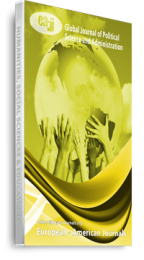This study examined “Foreign Democratic Assistance to Nigeria 1999-2015: The Nexus Between Strategy and Election Results. The study employed survey method. This method enable the authors to gather data from representative of sampled institutions: civil societies, political parties, election umpire (INEC), security institutions, Donor Agencies and opinion leaders 252 respondents were drawn from these institutions. Data were obtained using interview instrument (participants’ perspective). The realistic theory of change by Anderson, a modification of carol (1972) change model theory was used as the framework of analysis. Analysis of data gathered shows the following results. (1) That Nigeria received democratic assistance between 1999-2015 from US, UK, EU and other major international partners engaging in democratic promotion. (2) That Nigerians need such gesture to strengthening her democracy. (3) That Donor’s emphasis on civil society have little influence on state institutions that control electoral process in Nigeria. (4) Donor’s impact is not felt in the area of party primary – selection of party candidates. Lastly the result shows that Nigeria’s democracy exists within the context of particular mode of production that link set of values preferred by the political elite. This provides the context for electoral misbehavior. Thus, election violence, rigging, manipulation and imposition of candidates that characterized Nigerian elections do not in any way relate or correlate with foreign democratic assistance objectives. Based on these, the study suggests modification of Donor’s strategy (inclusive strategy) that will not only strengthen civil society but also regulate the excessive use of state power by power mongers to cause electoral fraud and violence just to remain in power.
Keywords: Democratic Assistance, Elections, Foreign

